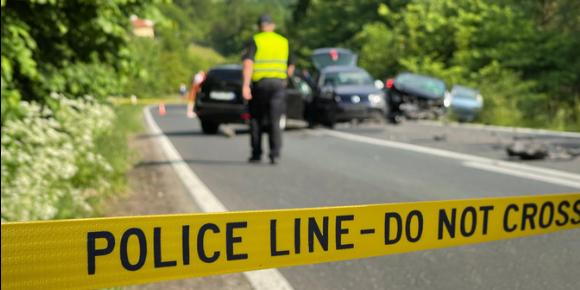
- posted: Nov. 15, 2023
- Criminal Defense
Sometimes called a “hit and run,” leaving the scene means any act of fleeing the site of a car accident by a driver having knowledge that death, serious harm or major property damage has occurred. The flight may be on foot as well as by driving away. Leaving the scene is a crime in Florida, ranging from a misdemeanor to a first-degree felony depending on the harm caused by the accident.
There are two Florida statutes that prohibit leaving the scene of an accident:
- Florida Statute 316.027 states that any driver involved in an accident that results in the death or injury of another person must stop their vehicle and remain at the scene until they have rendered aid to the injured person(s) and exchanged information with the other driver(s) involved in the accident. A violation is a first-degree felony, with penalties ranging from five years to 30 years in prison (the latter in the case of an accident causing death).
- Florida Statute 316.061 states that any driver involved in an accident that results in damage to another vehicle or other property must stop their vehicle and remain at the scene until they have exchanged information with the other driver(s) involved in the accident. A violation is a second-degree misdemeanor, punishable by up to 60 days in jail.
There are a few possible defenses for a person charged with leaving the scene of an accident. These include:
- Inability to stop — If there were circumstances beyond the driver’s control that prevented stopping at the scene, they might not be criminally liable.
- Lack of knowledge — The driver might not have been aware that they were involved in an accident that met the statutory criteria. This could be the case if the impact seemed minor or the driver was under the influence of alcohol or drugs (which is a separate offense).
- Getting help — It may be necessary to leave the scene in order to summon help for those injured, such as where there are no telephones at the scene. Or the driver might have left the scene in order to transport an injured person to the hospital.
- Necessity — The driver may be able to show that leaving the scene of the accident was necessary to avoid immediate harm to themselves or others. For example, another driver involved might have acted belligerently or have threatened harm.
If you are charged with leaving the scene of an accident, it is important to remember that you have the right to remain silent. You should not speak to police without first consulting with an attorney. An experienced criminal attorney can evaluate your case and develop an appropriate defensive strategy.
The Law Offices of Tad A. Yates, P.A. in Orlando defends people accused of leaving the scene of an accident in Florida. Call us at 407-608-7777 or contact us online to schedule a free consultation.


